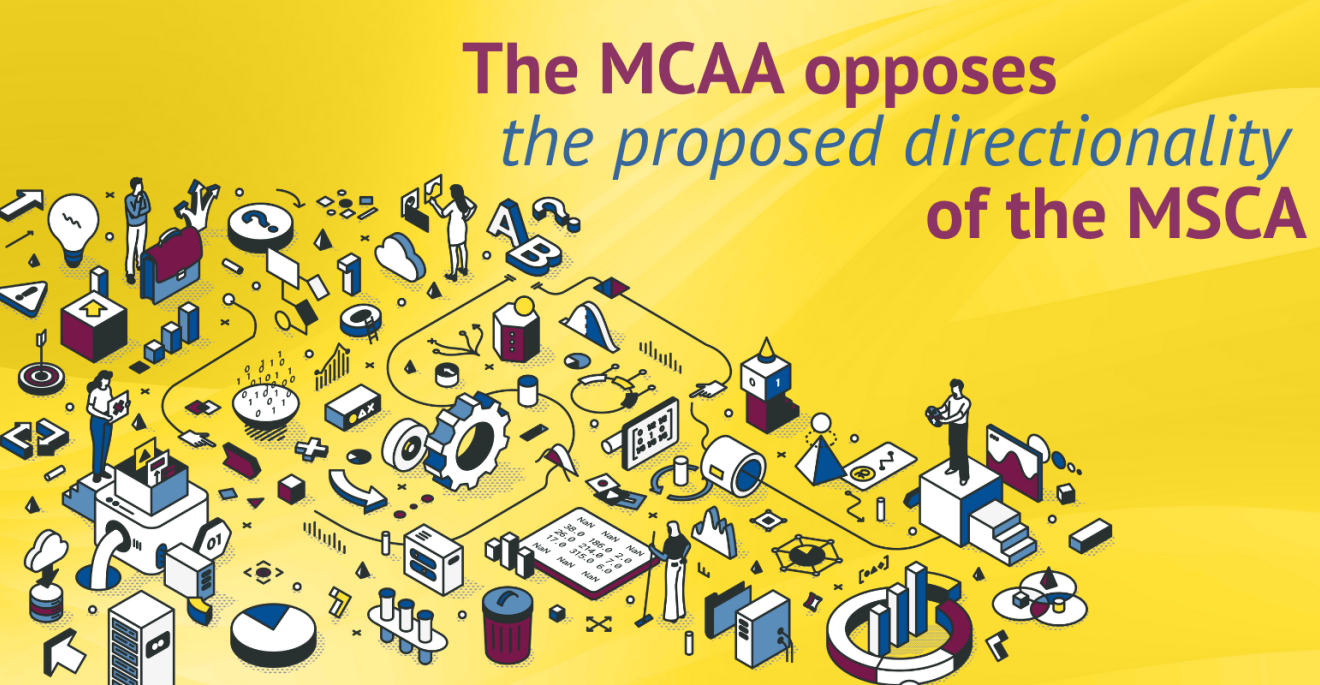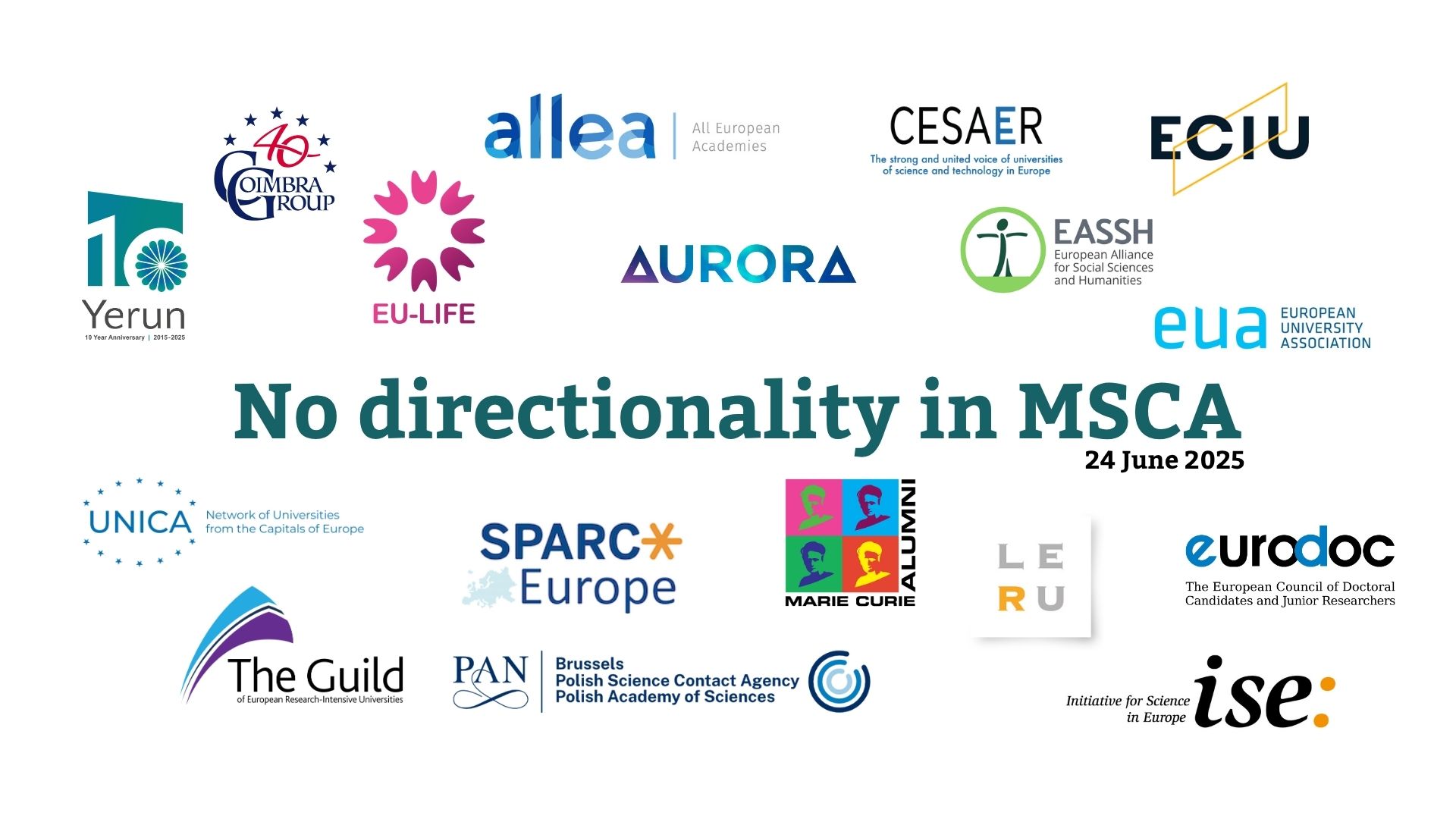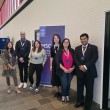The MCAA takes a stance against the proposed directionality of the MSCA

The Marie Curie Alumni Association (MCAA) publishes a joint statement with leading research organisations, firmly opposing the proposed discussion on top-down thematic priorities in the Marie Skłodowska-Curie Actions (MSCA).
The MCAA has co-signed a statement titled “No directionality in MSCA” with 16 other research organisations on the proposed introduction of directionality in the draft of the MSCA Work Programme 2026–2027. The organisations share their concerns about the European Commission’s recent proposal to establish targeted calls aligned with the EU's political priorities and use top-down funding to fund projects in strategic fields.
In a recent interview with Science|Business, MCAA Executive Director Mostafa Moonir Shawrav shared the Association’s recommendation to give the MSCA more independence and increase its budget under FP10, scheduled to start in 2028.
"The MSCA's proven 'bottom-up' approach is thriving. We must protect this effective model and ensure the Action retains its independence, with a dedicated budget and full autonomy in design, to tackle the global challenges ahead,” Shawrav says.
The MCAA also calls for increasing the investment in the MSCA: Horizon Europe's budget, under which the MSCA operates, should more than double to 220 billion euros, with the MSCA growing accordingly.
The MCAA's position is clear: the proposed directionality risks distorting a highly regarded programme that is critical for research careers. As the joint statement argues, “Scientific excellence is not confined to pre-defined fields and mono-disciplinary research. Europe’s long-term competitiveness depends on sustained investment across all areas of knowledge and interdisciplinary research. The EC’s proposal risks undermining the very attributes that have made MSCA a gold standard.”
Furthermore, introducing political directionality is unlikely to solve skills gaps, as the dynamic nature of these shortages means that by the time targeted cohorts are available, the needs may have already changed.
In the statement, led by the Coimbra Group, EU-LIFE, and the Young European Research Universities (YERUN), the 17 signing organisations highlight the importance of maintaining and improving the MSCA’s bottom-up approach while investing more in it.
“Through its bottom-up and non-prescriptive nature, the MSCA has empowered researchers at all stages of their careers. It has enabled breakthroughs in strategic areas such as AI, quantum, health, and climate, often well before these areas were politically prioritised. The programme is already delivering on EU priorities without the need for a top-down thematic focus. What it requires now is more support and funding, not redefinition,” the statement reads.
Alongside YERUN, Coimbra Group, EU-LIFE, and the MCAA, the statement is signed by All European Academies (ALLEA), Aurora, CESAER, European Alliance for Social Sciences and Humanities (EASSH), European Consortium of Innovative Universities (ECIU), European University Association (EUA), European Council of Doctoral Candidates and Junior Researchers (Eurodoc), Initiative for Science Europe (ISE), League of European Research Universities (LERU), Polish Science Contact Agency (PolSCA), SPARC Europe, The Guild, and Network of Universities from the Capitals of Europe (UNICA).

In May 2025, the MCAA published two policy statements, giving its feedback on the next Multiannual Financial Framework (MFF) and the Choose Europe initiative. Discover both statements here.
About the MCAA
The Marie Curie Alumni Association (MCAA) is a global network of researchers who have benefited from or are benefiting from the Marie Skłodowska-Curie Actions (MSCA). The MCAA supports and contributes to advancing knowledge for a global, diverse, and informed society. Its primary focus is to support its members’ career development, offer networking opportunities, and contribute to shaping research and innovation policies in the EU. Currently, the MCAA has over 22,000 members from 150+ countries, at all career stages and from diverse research fields.


